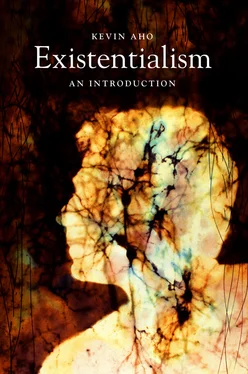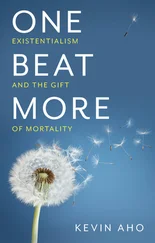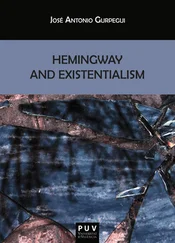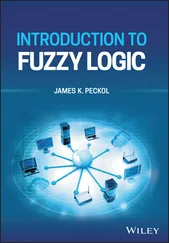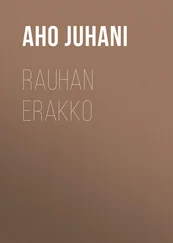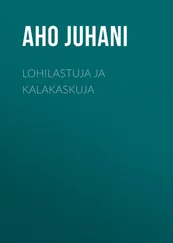Kevin Aho - Existentialism - An Introduction
Здесь есть возможность читать онлайн «Kevin Aho - Existentialism - An Introduction» весь текст электронной книги совершенно бесплатно (целиком полную версию без сокращений). В некоторых случаях можно слушать аудио, скачать через торрент в формате fb2 и присутствует краткое содержание. Год выпуска: 2013, ISBN: 2013, Издательство: Polity, Жанр: Философия, на английском языке. Описание произведения, (предисловие) а так же отзывы посетителей доступны на портале библиотеки ЛибКат.
- Название:Existentialism: An Introduction
- Автор:
- Издательство:Polity
- Жанр:
- Год:2013
- ISBN:978-0745651422
- Рейтинг книги:3 / 5. Голосов: 1
-
Избранное:Добавить в избранное
- Отзывы:
-
Ваша оценка:
- 60
- 1
- 2
- 3
- 4
- 5
Existentialism: An Introduction: краткое содержание, описание и аннотация
Предлагаем к чтению аннотацию, описание, краткое содержание или предисловие (зависит от того, что написал сам автор книги «Existentialism: An Introduction»). Если вы не нашли необходимую информацию о книге — напишите в комментариях, мы постараемся отыскать её.
Existentialism: An Introduction
Existentialism: An Introduction — читать онлайн бесплатно полную книгу (весь текст) целиком
Ниже представлен текст книги, разбитый по страницам. Система сохранения места последней прочитанной страницы, позволяет с удобством читать онлайн бесплатно книгу «Existentialism: An Introduction», без необходимости каждый раз заново искать на чём Вы остановились. Поставьте закладку, и сможете в любой момент перейти на страницу, на которой закончили чтение.
Интервал:
Закладка:
Grene, M. (1948). Dreadful freedom: A critique of existentialism . Chicago: University of Chicago Press.
Howells, C. (2009). Sartre: The necessity of freedom . Cambridge: Cambridge University Press.
Solomon, R. (2002). Nietzsche on fatalism and “free will.” Journal of Nietzsche Studies 23: 63–87.
6: Authenticity
Moods and the problem of the real self
The word ‘authentic’ derives from the Greek authentikos , meaning ‘original’ or ‘genuine.’ To say that I am authentic, then, is to say that I do not simply imitate the socially prescribed roles and values of the public world. I am genuine or true to the concerns and commitments that matter to me as an individual. Authenticity, as Charles Taylor writes, “is a certain way of being human that is my way. I am called upon to live my life in this way, and not in imitation of anyone else's. But this gives a new importance to being true to myself. If I am not, I miss the point of my life, I miss what being human is for me ” (1991, 28–29). Although Heidegger is the only one who liberally uses the word, employing the German Eigentlichkeit (from the stem eigen meaning ‘own’ or ‘proper’) that translates literally as ‘being one's own’ or ‘ownedness,’ existentialists are generally united in emphasizing the significance of authenticity, of being true to oneself. But, as we have seen, the commitment to one's own truth is difficult because our normal tendency is to drift along and conform to the average expectations and meanings of the public world. We are, for this reason, usually alienated from ourselves, living in a state of comfortable self-deception because we simply do what ‘they’ do. As a ‘they-self,’ we have no sense of who we really are or what really matters to us, and we are unable to see how exactly we are different from anyone else. Yet the existentialists make it clear that it is possible to be shaken out of self-deception, not by means of any kind of detached reasoning but through penetrating moods or emotional experiences that can shatter the routinized familiarity of everyday life, forcing us to confront ourselves as finite beings thrown into a world with no pre-given meaning that can justify our choices.
For Kierkegaard and Heidegger, this existential confrontation is disclosed to us primarily through ‘anxiety’ ( Angst ) or ‘dread.’ Unlike fear, which is always directed toward some external threat, anxiety is directed toward oneself as an unsettled existence penetrated by dizzying freedom and the possibility of death. “One may liken anxiety to dizziness,” writes Kierkegaard in The Concept of Dread . “He whose eye chances to look down into a yawning abyss becomes dizzy. … Anxiety is the dizziness of freedom which [when] freedom gazes down into its own possibility, grasping at finiteness to sustain itself” (1944, 55). Anxiety puts me face-to-face with my own freedom, exposing me to the fact that I am not a stable and enduring thing but a possibility . In this way, anxiety reveals existence as fundamentally insecure, that the public meanings I rely on to make sense of things are precarious, and that any sense I have of rational control and mastery of the world is an illusion. Coming from within, this feeling has the power to shake me out of the false security of everydayness and open me up to my own structural nothingness. Although Angst can certainly arise in the face of a profound crisis such as the death of a loved one, a terminal illness, or a divorce, the mood is largely autochthonous ; it is a fundamental part of the human situation and can, therefore, arise spontaneously on its own, without an identifiable cause or reason.
Jaspers refers to these moments as ‘limit’ or ‘boundary’ situations, a reference to the experience “when everything that is said to be valuable and true collapses before my eyes” (1956, 117; cited in Wallraff 1970, 137). Nietzsche describes this feeling in terms of “the terror” (2000, 36) that overwhelms us when language and reason fail and our understanding of the world as a place of order and reliability dissolves, shattering our sense of who we are as secure, self-subsisting individuals. Sartre famously refers to the “nausea” that suddenly overtakes us when the veneer of public meanings collapses and we are confronted with the superfluous and unintelligible ‘is-ness’ of things. Speaking through his character Roquentin in his novella Nausea , he writes:
And then all of a sudden, there it was, clear as day: existence had suddenly unveiled itself. It had lost the harmless look of an abstract category: it was the very paste of things, this root was kneaded into existence. Or rather the root, the park gates, the bench, the sparse grass, all that had vanished: the diversity of things, their individuality, were only an appearance, a veneer. This veneer had melted, leaving soft, monstrous masses, all in disorder — naked, in a frightful, obscene nakedness. … This moment was extraordinary. I was there, motionless and icy, plunged in a horrible ecstasy; I understood the Nausea, I possessed it. (127)
For Sartre, nausea reveals the sheer contingency and “terrible freedom” (1956, 55–56) of existence, where we alone are responsible for deciding who we are and what our fate will be. Marcel develops this theme by describing the feeling of “mystery” that intrudes into our everyday lives and defies rational explanation. It is the uncanny sense that “there is nothing in the realm of reality to which I can give credit — no security, no guarantee” (1956, 27), and I am left alone with the burden to accept and create myself. These feelings expose us to the fact that there is no ground that can secure our lives and that any project or identity we commit ourselves to is, in the end, futile.
Camus explores the possibility of suicide in the face of these feelings. In The Myth of Sisyphus , he refers to the feeling of “absurdity” that strikes out of the blue when our need for reasons confronts the “unreasonable silence of the world” (1955, 28), destroying the comforting rhythm of our everyday lives.
It happens that the stage sets collapse. Rising, streetcar, four hours in the office or the factory, meal, streetcar, four hours of work, meal, sleep, and Monday Tuesday Wednesday Thursday Friday and Saturday according to the same rhythm — this path is easily followed most of the time. But one day the ‘why’ arises. (13, my emphasis)
Absurdity prompts ‘ the why ’ because it discloses reality as it is , as contingent, meaningless, and irrational, revealing that I am “a stranger to myself and to the world” (20–21), and the only certainty is freedom and the ever-present possibility of my own death. Comparing the empty repetitiveness of modern life to the futile struggles of Sisyphus — who was condemned by the Greek gods to forever push a rock up a mountain only to watch it roll back down — Camus introduces suicide for those who are unable to bear the truth of ‘the absurd.’ The temptation to kill ourselves, then, is similar to our temptation to flee into the metaphysical comforts of religion or the tranquilizing routines of the public; they are all incarnations of flight from who we are. For Camus, suicide is a rejection or “repudiation” of one's own freedom, a freedom that defiantly and passionately affirms the absurdity of life and which alone can be “enough to fill a man's heart” (198).
Guilt is another mood that provides insight into our own existence. For existentialists like Kierkegaard and Heidegger, ‘guilt’ is not to be interpreted in the religious or moralistic sense as a feeling that we have done something wrong on the basis of some set of moral absolutes. This view creates the illusion that there are binding ethical norms that we can appeal to. Existential guilt dissolves this illusion, revealing that there is nothing — no God, no reason, no moral principle — that can legitimize or justify our choices and actions. Guilt reveals that we have been thrown into a world that we did not choose, and it is a world that has abandoned us to the extent that it lacks any objective measure that can tell us what we should or should not do. Understood this way, guilt does not represent a moral failing; it represents the structural unsettledness of being human. The fact that we are thrown into a world that offers no guidance for our lives means that guilt is invariably accompanied by anxiety. “The relation of freedom to guilt is anxiety,” says Kierkegaard, “because freedom and guilt are still a possibility” (1944, 97). The human situation is one where we are faced with an indefinite range of possibilities that the world opens up for us but are provided with nothing in terms of guidance. Guilt, then, not only reveals our structural unsettledness; it also reveals that we are answerable only to ourselves.
Читать дальшеИнтервал:
Закладка:
Похожие книги на «Existentialism: An Introduction»
Представляем Вашему вниманию похожие книги на «Existentialism: An Introduction» списком для выбора. Мы отобрали схожую по названию и смыслу литературу в надежде предоставить читателям больше вариантов отыскать новые, интересные, ещё непрочитанные произведения.
Обсуждение, отзывы о книге «Existentialism: An Introduction» и просто собственные мнения читателей. Оставьте ваши комментарии, напишите, что Вы думаете о произведении, его смысле или главных героях. Укажите что конкретно понравилось, а что нет, и почему Вы так считаете.
